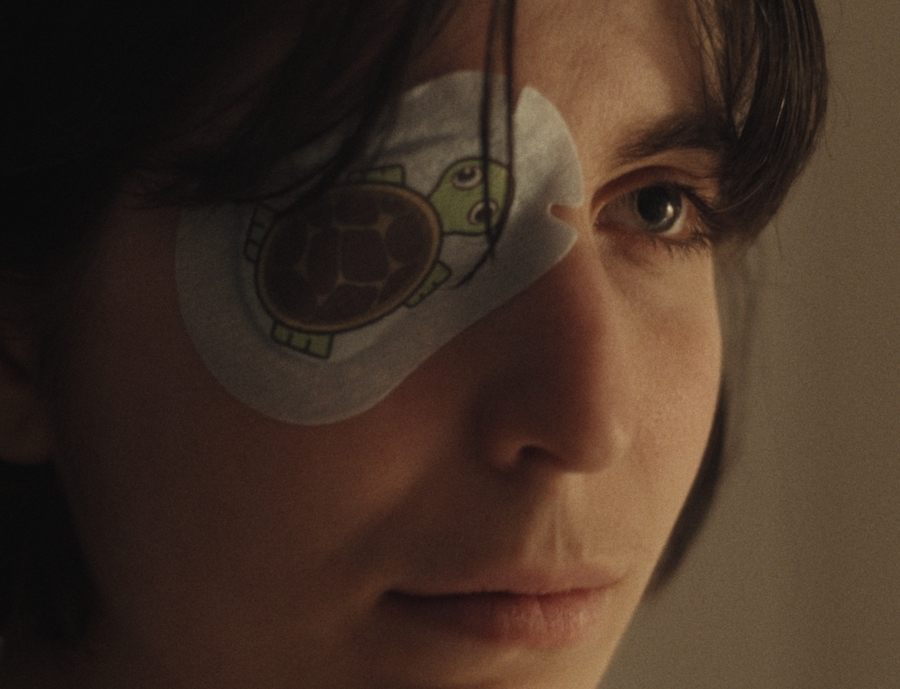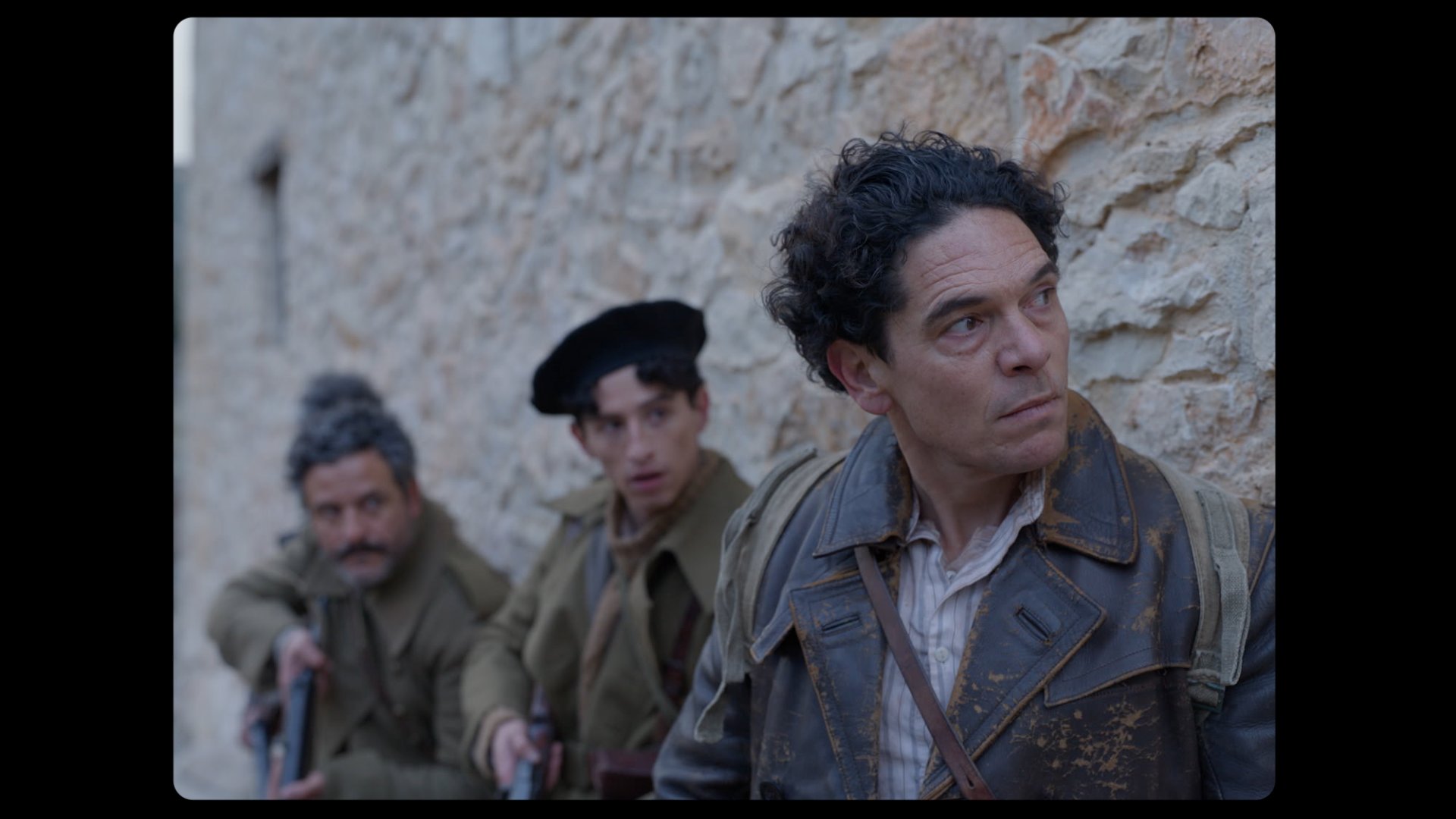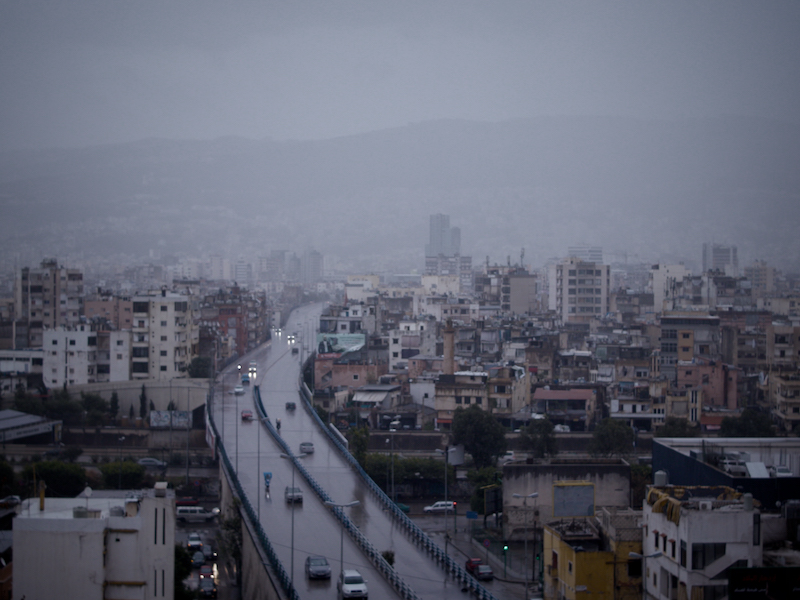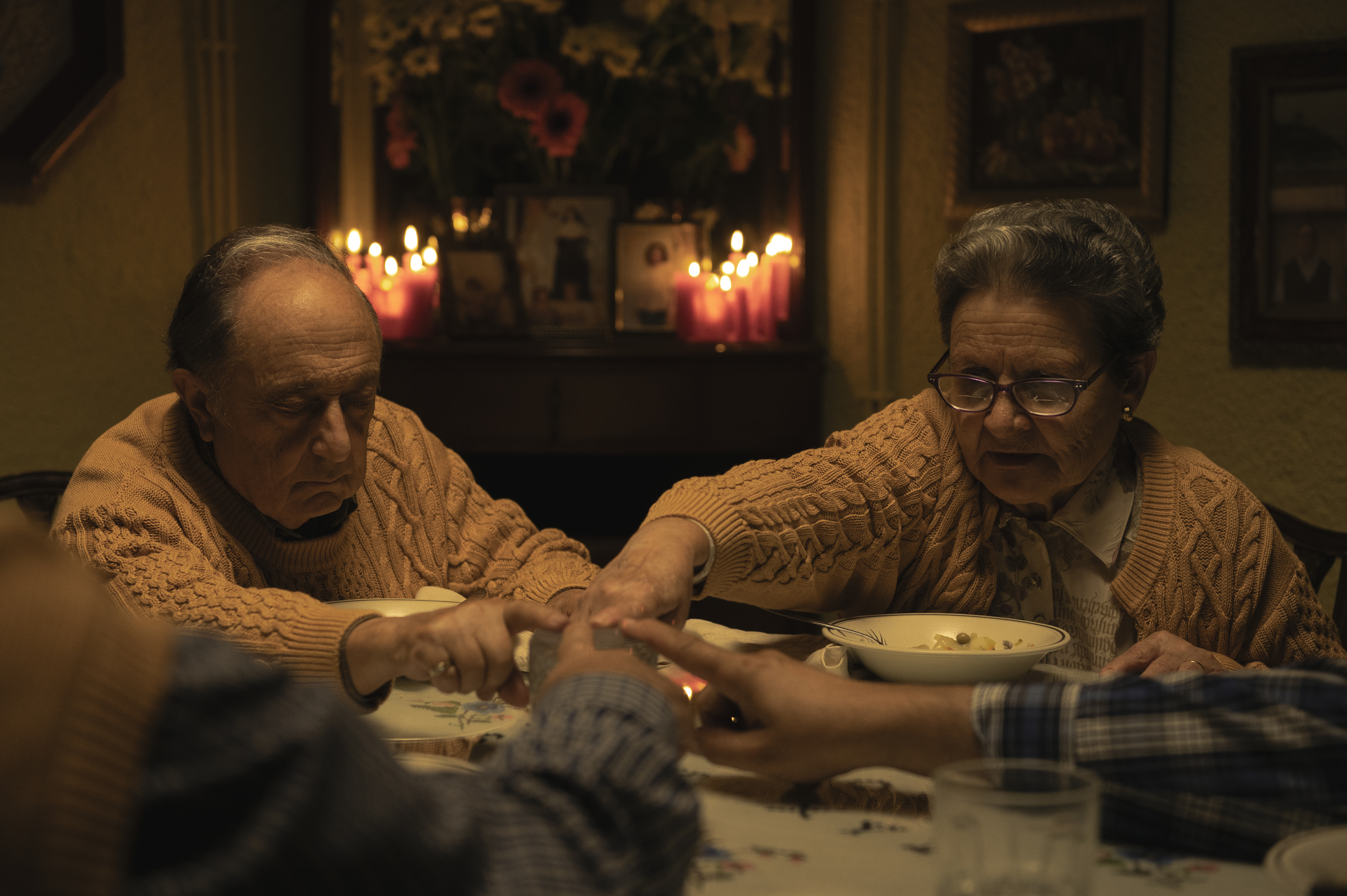Spain at Locarno 2024
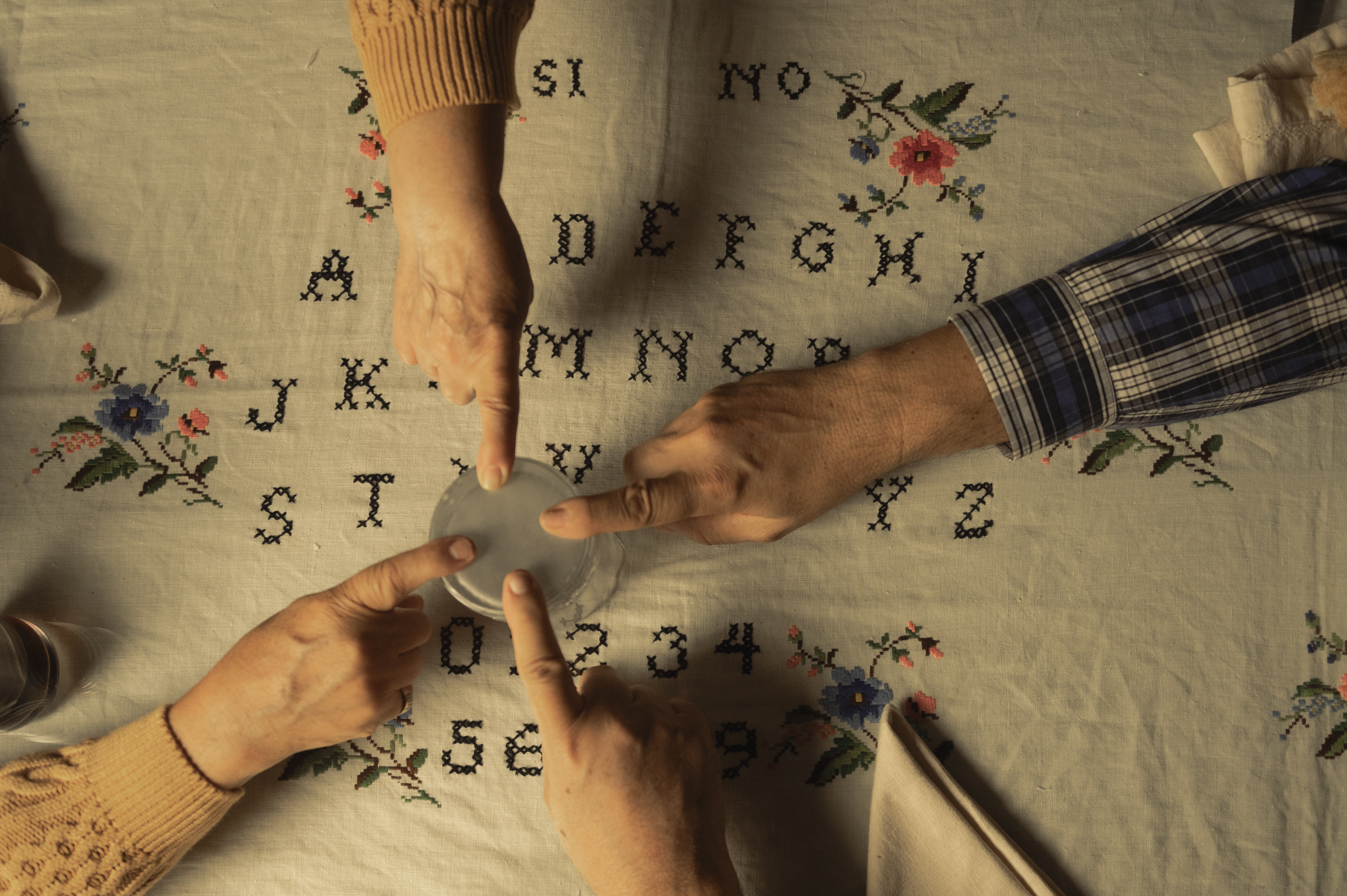
This year, Spain is the selected country in the thirteenth edition of ‘First Look,’ the section dedicated to work-in-progress at Locarno Pro, the industry area of the festival.
Founded the year after the end of World War II, this festival, held in the beautiful Swiss canton of Ticino, has become both an exquisite showcase for auteur cinema and an industrial platform for projects with the most diverse geographical origins and artistic profiles.
A Spanish selection, Mothers Don’t, by Mar Coll, is competing in the International Competition of the 77th edition of the Locarno Festival, among 17 titles vying for the “Golden Leopard.”.
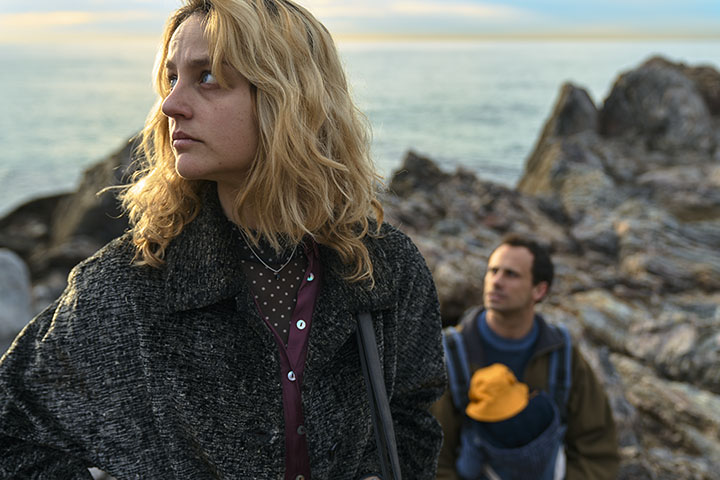
Winner of the Goya for Best New Director for Three Days with the Family, Catalan director Mar Coll has gathered a production team from Escándalo Films (the production arm of the prestigious ESCAC school in Barcelona) and Elástica Films. Belgian company Be For Films is handling international sales for this story about a promising writer and young mother who is deeply disturbed by a newspaper headline: a French woman has drowned her 10-month-old twins in the bathtub.
Out of competition and in the Piazza Grande, one of the most internationally renowned actresses in Spanish cinema, Paz Vega, will present her directorial debut in a world premiere: Rita. The festival’s director, Giona A. Nazzaro, has declared that she “has emerged as a true filmmaker.” Filmax is handling international sales for this production by Aralan Films and Oda Films, a coming-of-age story set in 1984 in Seville, which was captivated by the UEFA European Championship, where Spain faced France in the final.
The Piazza Grande will also host the Swiss premiere of Reinas, an unusual co-production between Switzerland, Peru, and Spain, directed by Klaudia Reynicke. Inicia Films is the Spanish production company for this title, which was presented in the Generation section (Berlin) and at Sundance this year. Finnish company The Yellow Affair is the sales agent.
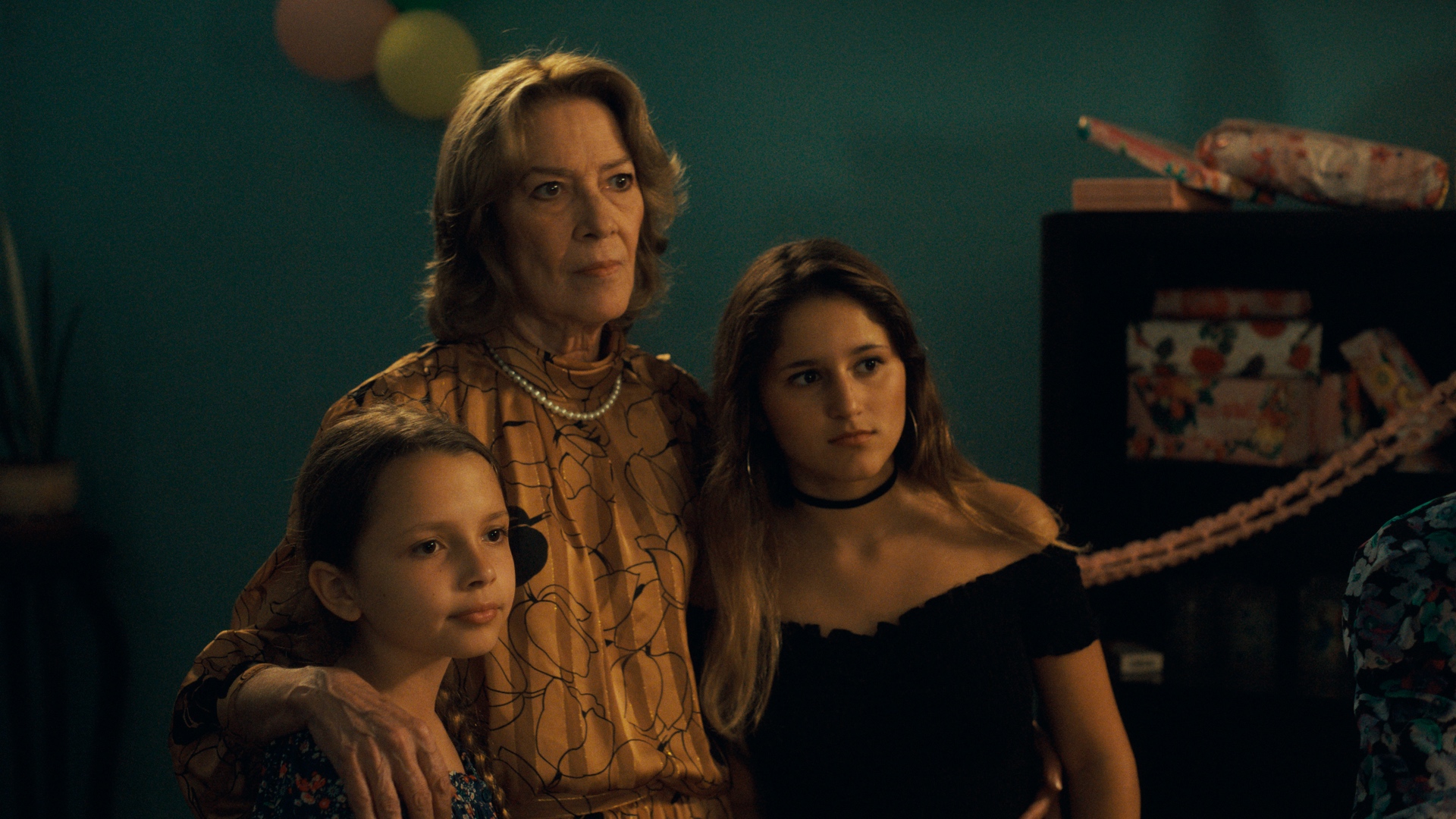
Spain, Selected Country in ‘First Look’, to Showcase Six Feature Films in Final Stages of Post-Production at Locarno Pro
This year, Spain is the selected country in the thirteenth edition of ‘First Look,’ the section dedicated to work-in-progress at Locarno Pro, the industry area of the festival. And here we want to pause. These are six distinct titles, almost all of them sharing a common characteristic: their formal and narrative restlessness as they navigate the borderlands between reality and fiction.
In addition to the opportunity to attract the interest of sales agents, festival programmers, or minority co-producers, the titles will compete for various cash prizes and services aimed at finalizing their production processes.
Still Life With Ghosts
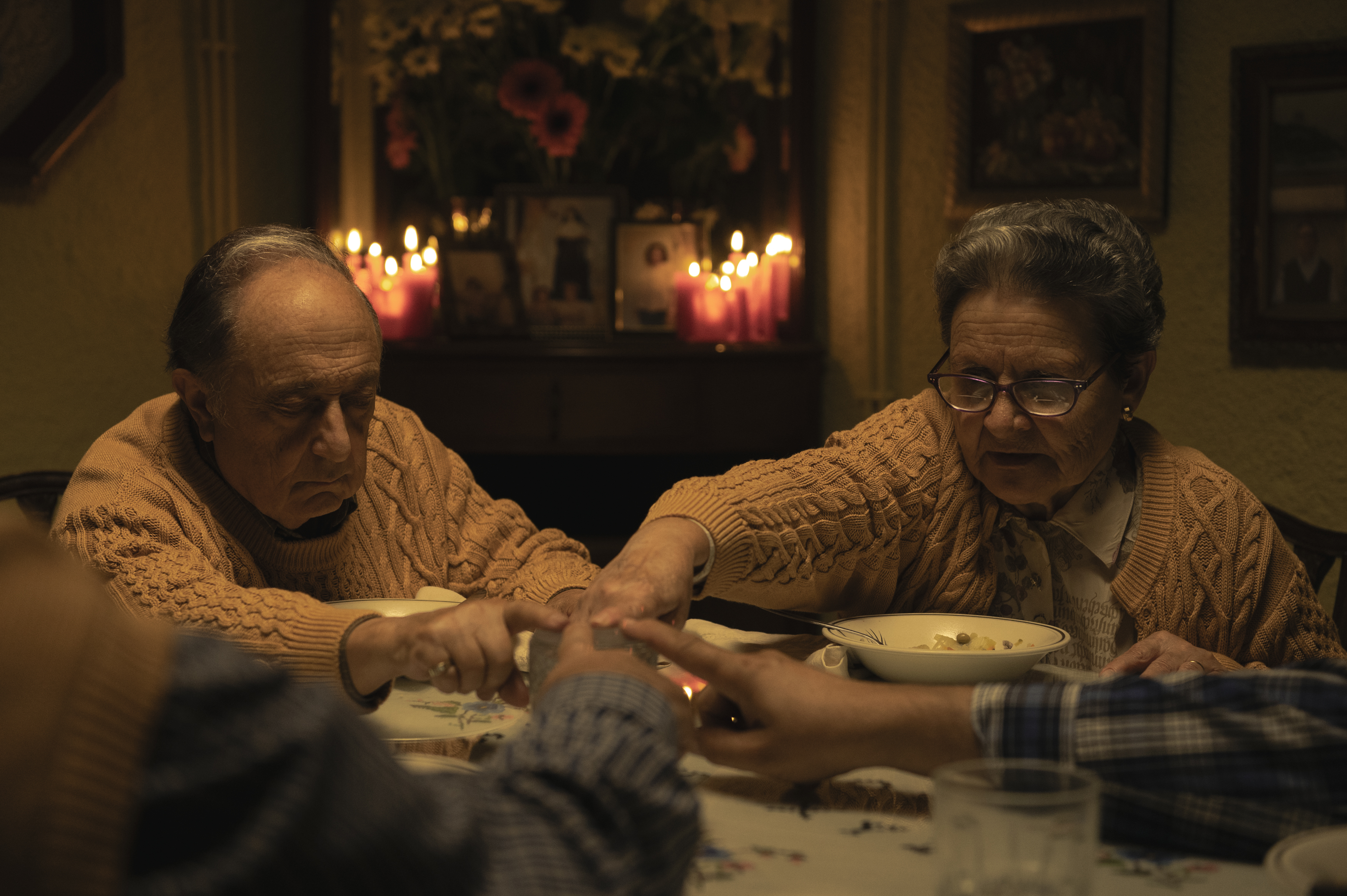
After producing his two short films, it made sense that Alejandra Mora from Quatre Films would support Enrique Buleo's feature film debut. The Valencian producer sees humor as the perfect strategy to tackle "complex themes and human contradictions." Her partner, Alicia Yubero, from the production company Cuidado con el Perro, agrees and believes that what makes Still Life with Ghosts unique is precisely its approach to "transcendent themes with a very personal humor and a different aesthetic." The production team was finally completed with the addition of Sideral (also as the Spanish distributor) and Serbian producer Snežana van Houwelingen from This and That.
Conceived as a surreal, rural black comedy, Still Life with Ghosts offers a collection of characters in a remote village in La Mancha through five interwoven stories. Some characters are alive, others are not. Both, the living and the ghosts, seek and need each other, "anguished by the hardships and struggles of life and death," explain the producers.
The project has garnered many and diverse supporters throughout its development. It began its journey at the ECAM Incubator, where it was mentored by screenwriter, playwright, and director Juan Cavestany. Soon after, Cuidado con el Perro joined. After winning awards at Abycine Lanza and AB Audiovisual, the Albacete platform "became one of the project's greatest allies and promoters," as Mora explains.
Thanks to ECAM's collaboration agreements, the project was able to access the Torino Film Lab and Focus Copro in Cannes. Another milestone was being part of the EWA Producers Mentoring Program, where the project was mentored by Snežana van Houwelingen, a solid and experienced Serbian producer who later joined as a minority producer and whose experience was crucial in securing MEDIA funds. Finally, Sideral joined as co-producer and distributor, a collaboration that had begun to take shape at the Incubator.
Other stops on the journey included the Coproduction Forum of "When East Meets West" in Trieste, where the project received the Serbia Film Center Award, as well as the "Sofia Meetings" and the WIP at Mafiz in Malaga, where the project received several accolades.
The project is funded by Media, ICAA, and IVC, with the participation of À Punt Mèdia, CLM Media, CREA SGR, and the collaboration of ECAM. It was also the winner of the Second Feature Film and Series Production Competition promoted by the Castilla-La Mancha Film Commission and the Castilla-La Mancha Regional Government.
The film is currently in the final stages of post-production and has already begun designing promotional materials. The team's goal at Locarno is to finalize an agreement with an international sales agent and begin international distribution.
Those professionals and agents interested will find a "still life" that is anything but orthodox, oozing a dark, irreverent, and "Manchego" sense of humor—a director’s comedy with both customary and surreal elements.
Dream of Another Summer
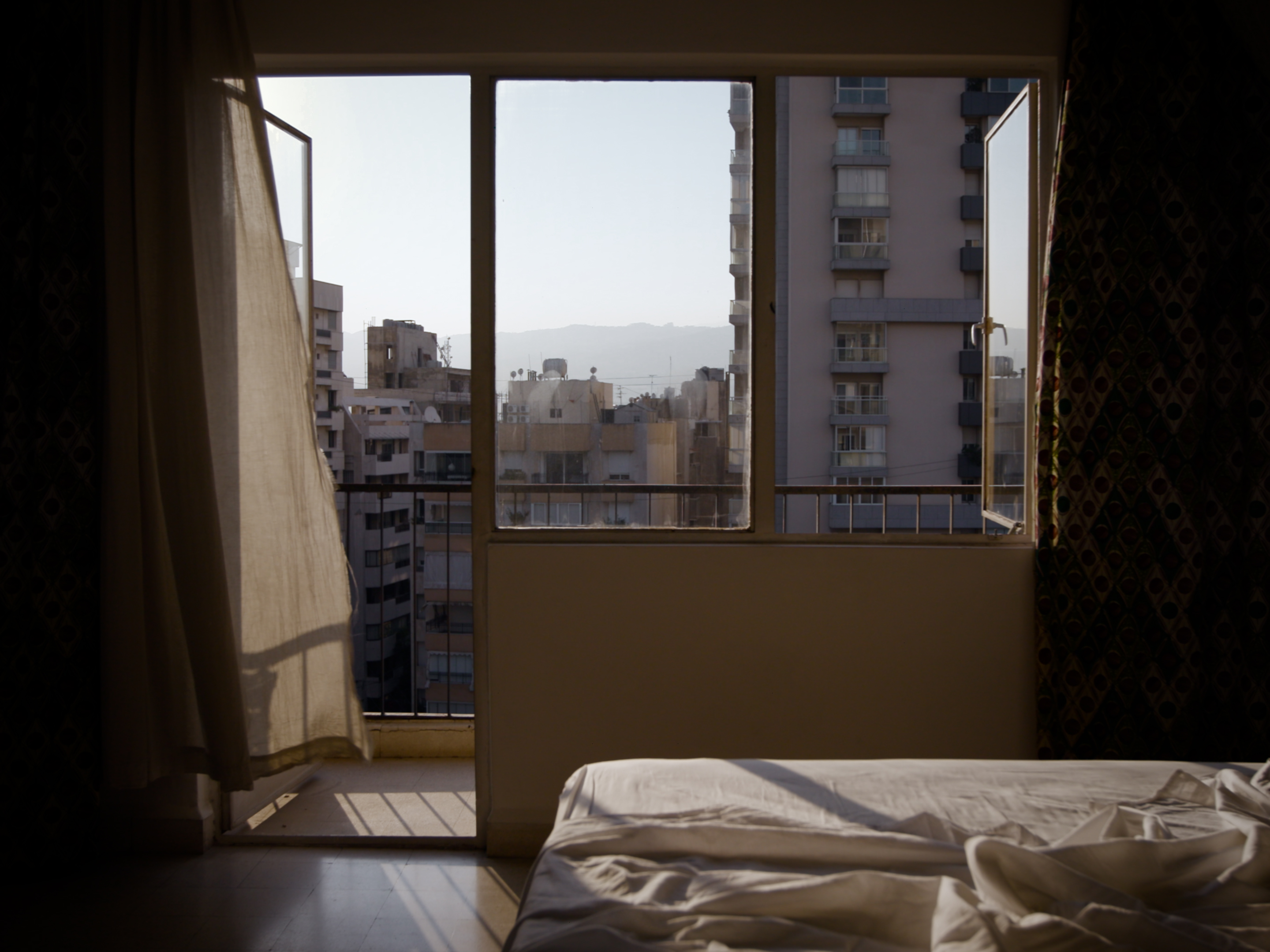
Director Irene Bartolomé has previously directed two short films (Lunch Time and The Williamsburg Houses) that explored different aspects of urbanism in Cairo and New York. She trained at Pompeu Fabra University in Barcelona, as well as at ECAM and the University of London.
The logline of Dream of Another Summer reads: "the story of the encounter between a woman in collapse and a city in ruins, exploring how the spaces we inhabit relate to us, and reflecting on mortality and the survival of a city."
In the film, the viewer becomes the eyes and ears of Alicia, who has returned to Beirut after a year away. We barely see her; we become her gaze and consciousness. The journey through the sounds and images of Beirut becomes a search to make sense of the city's incessant destruction. Beyond being a portrait of Beirut, it is, as Bartolomé says, "a vital, sensory, and existential journey" that began to take shape after the explosion of nearly 3,000 tons of ammonium nitrate at the Beirut port on August 4, 2020, leaving over 200 dead and 7,000 injured. "What happens when violence (once again) unexpectedly leaves its mark on a city like Beirut? How does it rebuild itself while preserving its history and memory?" Bartolomé asks, explaining the intentions behind her work.
Dream of Another Summer is produced by Colibri Studio and I.B. Films from Spain, in co-production with The Attic Productions in Lebanon.
Based in Barcelona, Colibri Studio was founded in 2015 and focuses mainly on documentary projects strongly committed to the arts and social aspects.
The team's goals are "to complete the post-production process to the highest possible quality standards and to find a sales agent to establish the most appropriate international festival circuit," they explain.
The project has received financial support from various funding and subsidy systems from ICAA, the Goethe Institute, and the Spanish embassy in Lebanon, the Documentary Creation Editorial Accompaniment Laboratory (LABED) at Barcelona School of Management, the Dirdira Lab (Basque Country), and the SGAE Foundation. Other events the film has participated in include the Inesperada Festival, D'A, and the Final Cut Lab at Documenta Madrid.
The Lookout
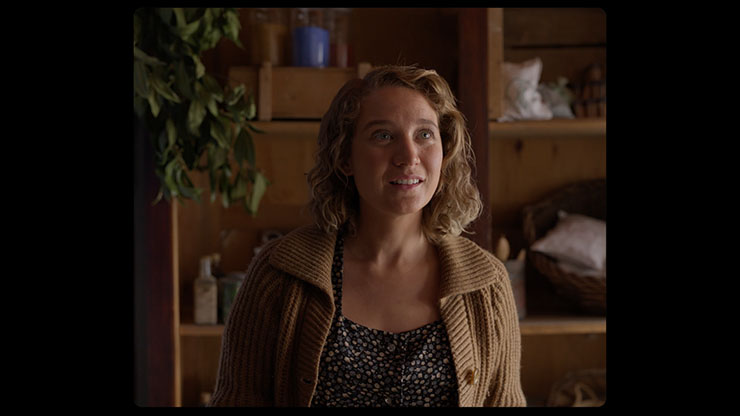
The Lookout "tells the true story of an intersex child whom their parents register as female (Teresa Plà Mesegué) to protect them from the potential misunderstanding their condition could cause in the rural community they belong to," explains director Marc Ortiz. Teresa will have to fight to be recognized as a man in the archaic rural Spain of the last century when Francoism and the church held the ideological and moral reins of the country. Teresa was pursued by the Civil Guard, the anti-Franco guerrilla, and the same civilian population.
The child was born in a shepherd's house in a small municipality in Castellón, Vallibona, in 1917. Despite the family's isolated life, Teresa was not spared from mistreatment and misunderstanding. As a young adult, Teresa joined the maquis, an anti-Franco revolutionary movement where, among other nicknames, they were known as the Other Durruti. Teresa gradually liberated their genuine gender characteristics until becoming Florencio. Francoism knew them by the name La Pastora, and for its propaganda apparatus, Florencio was the perfect embodiment of demonic attributes: guerrilla, criminal, sexually anomalous, and immoral. Florencio was sentenced to death by the Francoist authorities. The sentence was commuted to 30 years in prison, of which they served 17, being pardoned in 1977, a year after the dictator's death.
"The film is a thriller disguised as a historical biopic with an aesthetic that works the image guided by a desire for precision while being realistic," adds Ortiz.
It is a production by Paloma Mora from TV On Producciones, in alliance with Admirable Films and Lamalanga Produccions. Based in Valencia, TV On produces content for film and television, including animation production. For Mora, the case of The Lookout "is a perfect example that explains our profile as a company: it is a small, remote, local story with a powerful international ambition. Our intention is also to offer an opportunity to new filmmakers—as is the case—and to explore new languages and themes."
For Marc Ortiz, The Lookout also represents his first feature film after a decade of directing fiction and documentary short films.
The project participated in the Berlinale Copro Series and the Conecta Fiction Market, among other forums. Its development is supported by the ICAA, IVAC, À Punt Mèdia, CLM Media, and CREA SGR.
Mora also emphasizes that the production has had "the essential participation of La Caña Brothers and Guillermo Rojas from Dosdecatorce as associate producers and co-producers respectively." Mora concludes: "We have had the guidance of the Torino Film Lab and Media funds to reach this point of final post-production in which the film is now."
The Lookout has already completed its post-production process. The objective now is to work on an international festival strategy and negotiate agreements with a sales agent.
Mums
Another documentary proposal, Mums, is supported by María Nova López, from her firm Intactes – based in Barcelona and Mexico – and the director Ariadna Seuba (Operation Globus). After confirming the participation of the Catalan public television channel (3Cat), Intactes partnered with the Barcelona-based production company Polar Star Films, one of the most solid independent companies specializing in creative documentary films in Spain. It was founded in 1997 by Carles Brugueras. One of its latest productions, The Click Trap by Peter Porta, premiered at the last HotDocs.
An especially honest documentary, with a touch of "romantic tragicomedy", Mums portrays the winding journey towards motherhood of a couple of women aged 40 and 32 who decide to get pregnant through assisted reproduction. They invite us into the intimacy of their home and to share an intense desire whose journey proves harder than they imagined. The medical ups and downs are accompanied by emotional ones, but after four intense years, when fatigue seems to reach a dead end, they receive hopeful news.
Practically finished, the film is told in the "first person" as it narrates the process experienced by director Seuba and her partner. "Mums follows my partner Anna and me as we go through some of the best and worst moments of our lives. I wanted to tell this story from the inside, so I turned our house into a film set and shot over five hundred hours over 4 years. The result is an intimate portrait of our life as a couple, capturing the emotional journey of trying to get pregnant," says Seuba.
"Filmed by one of the two protagonists, Mums is a film that reveals the personal, often overlooked side of assisted reproduction: the emotional roller coaster behind this increasingly common medical process," notes producer Marieke van den Bersselaar (Polar Star).
Mums received a grant for the production of documentary feature films from the Catalan Film Institute (ICEC) in 2022. The project participated in the Mallorca Talents Lab (Atlántida Film Festival) in 2021, the Thessaloniki Pitching Forum in 2022, and the D’A Final Cut Lab in 2024. With a first cut already completed, the film team will be looking for international sales and preparing the festival itinerary at Locarno.
Prefiro condenarme
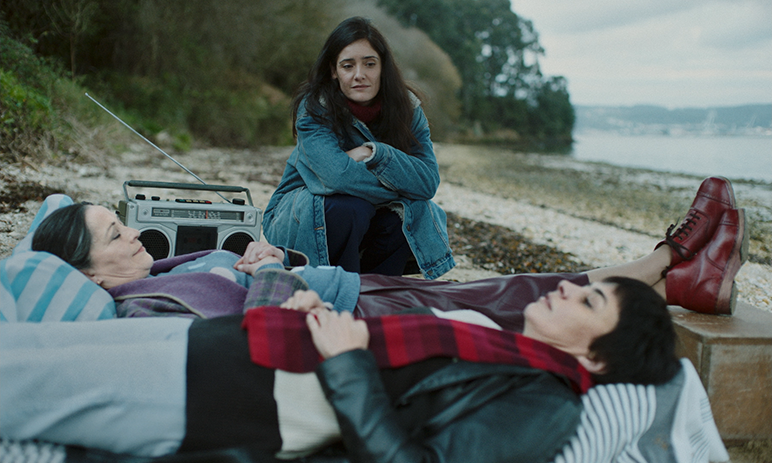
Nós Produtora Cinematográfica Galega presents itself as follows: "With each of our films or television series, our purpose is to highlight the tangible and intangible heritage of Galicia, as well as to offer contemporary auteur cinema in the Galician language, focusing on what might seem residual and building a community of film enthusiasts."
The logline of Prefiro condenarme reads: "A documentary film about specific female crimes during the dictatorship and the resilience of a shellfish gatherer, that is, a common woman."
A production company with a long history, Nós was founded in 1975, with its early days marked by a strong political commitment to freedoms in a country emerging from dictatorship. Later, it was reestablished "as an independent production company that works in the line of small cinemas," explains Carmen Ciller, the film's producer, along with Olaia Ledo, adding: "The film represents progress in this line of independent production based on social and cultural values that connect cinema with a clear intention to recover stories and archives that constitute a cultural heritage of incalculable value for society. And above all, to represent on screen those who have been excluded from audiovisual and cinematic representation by history."
Prefiro condenarme is a portrait of a humble woman, Sagrario, a Galician shellfish gatherer in the twilight of Francoism. Married at 16 to a merchant husband, Sagrario suffered all kinds of abuses every time he returned home for a period, leaving her pregnant on each visit. However, within Sagrario lies desire, disobedience, and a class consciousness that endows her with extraordinary strength, leading her to cling to adultery as a lifeline. Sagrario's mother warns her: "You’re going to condemn yourself." "I'd rather be condemned," she replies.
Directed by Margarita Ledo Andión (Nación, A cicatriz branca), who is also co-writer alongside Eva Veiga, the film is almost complete, with just a few brief sequences to be shot in Super 8, and final image grading and sound mixing pending. The acquisition of some image archives is also required. It has received public support from AGADIC (the Galician Agency for Cultural Industries) and CRTVG, the Galician television network. Additional contributions have come from the Lugo Provincial Council and the Fene City Hall. In Locarno, the team will seek financing to finalize the post-production process.
Downriver, A Tiger
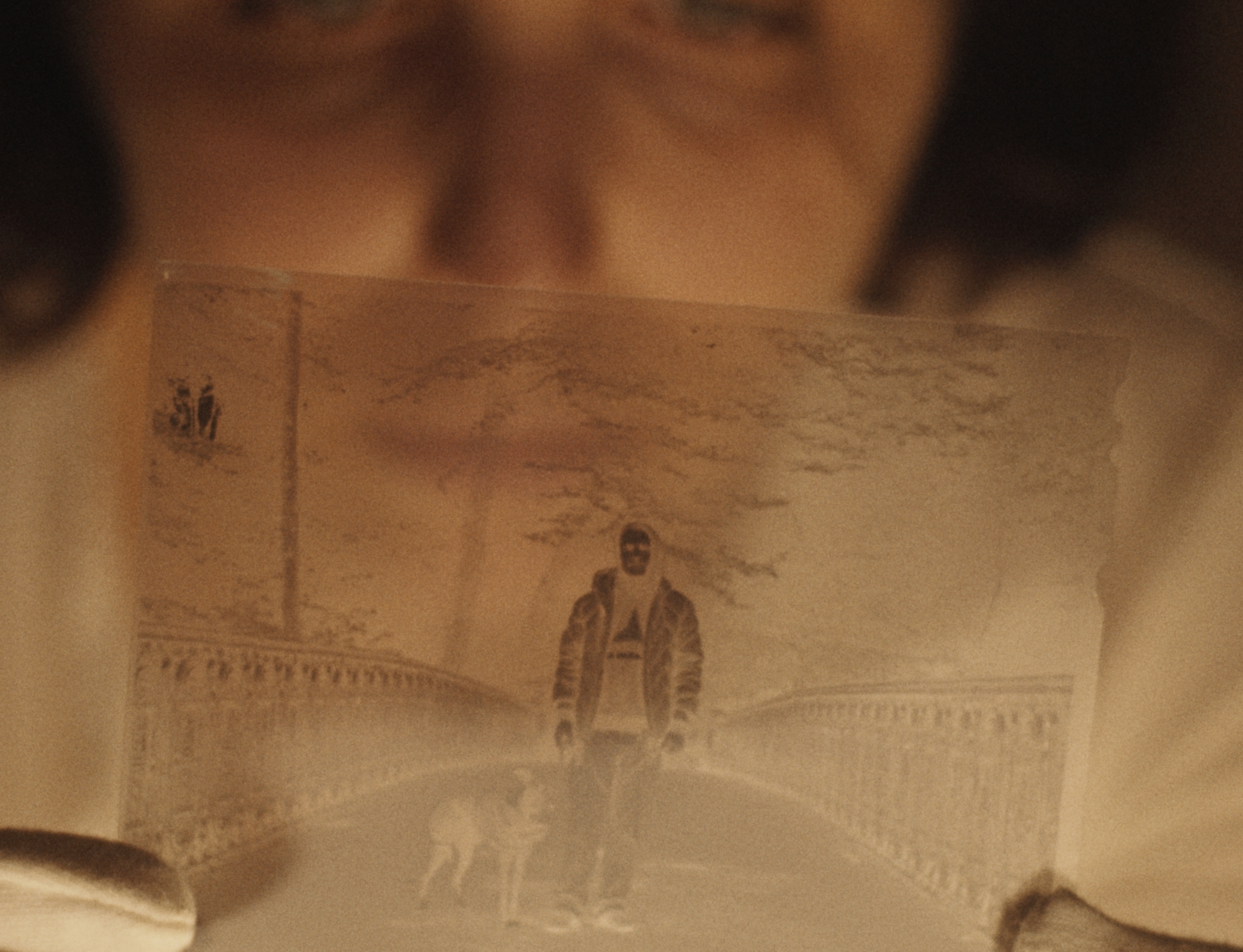
Downriver, A Tiger "is a self-financed film, made with freedom and radicalism outside the industry, constructed as a fable to talk about migration and its melancholy through the love story of two strangers," says the film's producer, Montse Pujol, from Boogaloo Films. She adds: "The film mixes fiction and documentary cinema with archival material from the National Library of Scotland to offer a humble testimony of all the migrants and workers who built post-industrial cities like Glasgow."
The film centers on Júlia, who arrived in Glasgow some time ago, fleeing Barcelona, with the intention of "starting from scratch." Years have passed, and she seems stuck. In the mornings, she tries to continue her career as a photographer; at night, she washes dishes in a restaurant. One afternoon, while photographing pedestrians crossing a bridge, one of her eyes begins to fail. As the illness progresses, Júlia embarks on a search into the past, exploring the depths of Glasgow and its history.
This is the first feature film by Víctor Diago, which does not follow conventional or orthodox production or development processes. It was built from visits Víctor made to his sister in Glasgow and on that shifting and fertile ground of hybridity, between documentary and fiction. It has not received public funding nor participated in labs, markets, or residencies. Locarno Pro / First Look is the first festival and market in which it participates, the first step towards reaching its audience.
The film is currently in post-production, with editing completed and color grading done, with only the sound remaining. Their goal at Locarno: "to find a sales agent and premiere at international festivals, as well as position the film internationally," Pujol states.
Boogaloo presents itself as a creative group that explores new forms of production and storytelling. Some of their previous productions include the series Autodefensa (Filmin) by Berta Prieto, Belén Barenys, and Miguel Ángel Blanca, which won the award for Best Short Series at the Seriesmania festival, in which Diago participated as an editor. Another representative title of Boogaloo is Tolyatti Adrift by Laura Sisteró, selected at Hotdocs and Visions du Réel.
Related
Related news
No results found.


